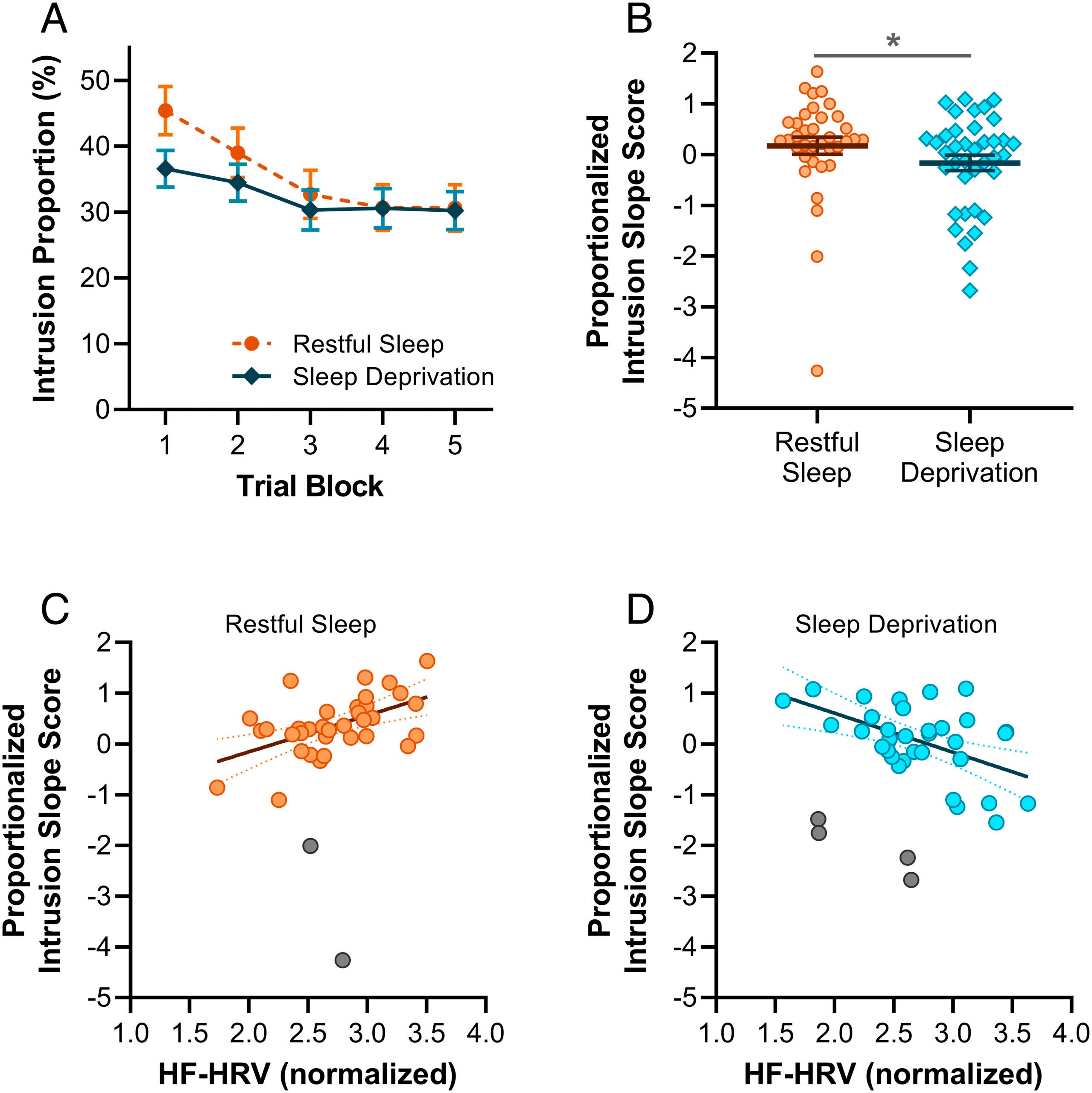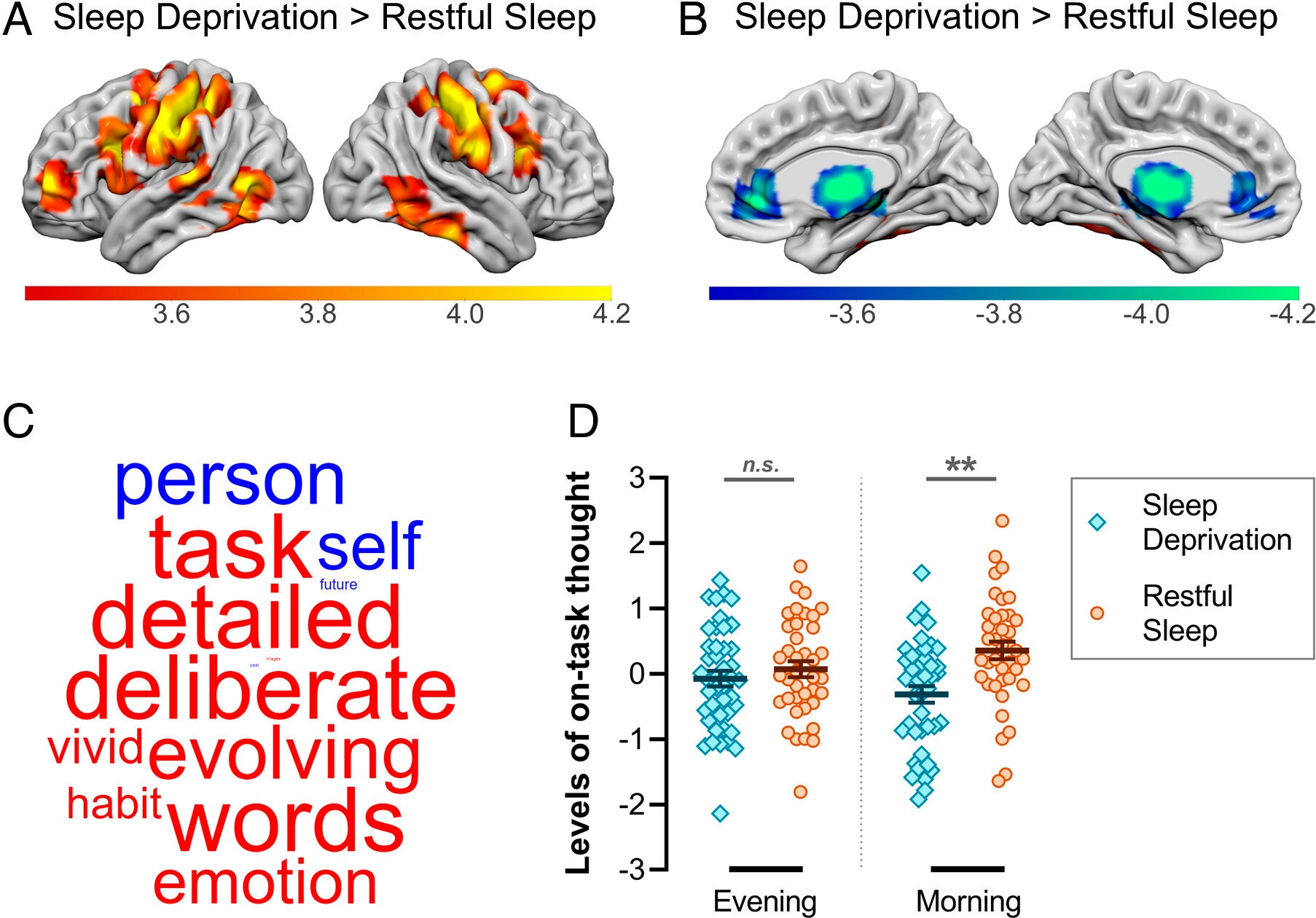Unwanted memories can surface suddenly, triggered by reminders and often causing discomfort. For individuals with mental health disorders such as depression, anxiety, and PTSD, these intrusions can be frequent and distressing.
Understanding how these memories are regulated provides crucial insights into emotional well-being and could alleviate the burden of mental illness globally.
Research shows that one way to handle unwanted memories is through suppression—actively pushing these thoughts out of conscious awareness. This suppression weakens the associated memory trace, reducing future intrusions. However, sleep plays a pivotal role in this process. Well-rested individuals demonstrate a greater ability to suppress memories effectively, while sleep-deprived individuals struggle, leading to persistent intrusive thoughts.
The ability to suppress memories is linked to high-frequency heart rate variability (HF-HRV), a physiological marker of cognitive control. Those with higher HF-HRV show better suppression and less emotional reactivity to negative stimuli.
Yet, whether HF-HRV’s benefits for memory suppression persist after sleep deprivation remains uncertain. These findings suggest that the interplay between physiological markers and memory control mechanisms could hold the key to addressing mental health challenges.

At the neurocognitive level, memory suppression relies heavily on the right dorsolateral prefrontal cortex (rDLPFC), which inhibits retrieval processes in the hippocampus. This inhibition involves local GABAergic mechanisms, and disruption of this memory control network by sleep deprivation has been observed.
Sleep-deprived individuals show reduced rDLPFC activity, impairing their ability to suppress unwanted memories. This breakdown may explain why prolonged wakefulness exacerbates intrusive thoughts. These neural disruptions highlight how sleep deprivation not only affects memory but also intensifies emotional vulnerability.
Dynamic brain network interactions also contribute to memory suppression. The default mode network (DMN), active during rest and internal focus, must disengage during tasks requiring attention.
Simultaneously, the frontoparietal cognitive control network (CCN), which supports goal-directed tasks, must activate. Sleep deprivation disrupts this balance, leading to inappropriate DMN persistence and weakened CCN engagement.
Functional MRI studies of sleep-deprived individuals reveal a breakdown in the functional segregation between these networks, further impairing memory control. Such findings provide a framework for understanding how cognitive tasks falter under the strain of insufficient rest.
Related Stories
Behaviorally, these disruptions manifest in an inability to suppress intrusive thoughts, resulting in unsolicited and unfocused mental content. Sleep-deprived individuals report more off-task thoughts during demanding cognitive tasks, reflecting a failure of attentional control.
This aligns with findings that sleep deprivation reduces deliberate, focused thinking and contributes to mental health issues. These behavioral changes underscore the cascading impact of poor sleep on everyday cognitive and emotional functioning.
To explore these mechanisms, researchers conducted a study involving 85 healthy adults. Participants were tasked with suppressing unwanted memories after either a night of sleep deprivation or restful sleep.
Functional MRI scans revealed that well-rested participants displayed greater rDLPFC activation and reduced hippocampal activity during memory suppression, while sleep-deprived individuals showed the opposite. These neural patterns reinforce the critical relationship between sleep and the brain’s ability to regulate intrusive memories effectively.
The study also examined the role of rapid eye movement (REM) sleep in memory suppression. Participants who spent more time in REM sleep demonstrated better rDLPFC engagement, suggesting that REM sleep restores prefrontal control mechanisms critical for managing intrusive memories.

This finding aligns with prior research linking REM sleep to reduced emotional reactivity and improved emotional regulation. The importance of REM sleep cannot be overstated, as it appears to serve as a nightly reset for the brain’s emotional and cognitive faculties.
Further analysis of resting-state fMRI data revealed that sleep deprivation increased connectivity between the DMN and CCN, disrupting their functional decoupling. Sleep-deprived individuals also exhibited unstable thalamic input to these networks, contributing to failures in adaptive memory control. This instability within key brain regions may serve as a diagnostic marker for identifying the cognitive deficits associated with chronic sleep deprivation.
Participants described their thought patterns before and after the overnight delay. Sleep-deprived individuals reported fewer deliberate, on-task thoughts and a greater prevalence of unsolicited mental content. This suggests that the inability to suppress unwanted memories leads to broader cognitive control deficits.
The study’s methodology, which combined subjective reports with neuroimaging, provides robust evidence of how thought patterns degrade without adequate rest.
Dr. Marcus Harrington, the study’s lead author, emphasized the significance of these findings. “Memories of unpleasant experiences can intrude into conscious awareness, often in response to reminders,” he noted. “For individuals with mental health disorders, these intrusions can be vivid and upsetting.

Understanding the mechanisms behind memory control failures can improve emotional well-being and reduce the global burden of mental illness.” His comments highlight the practical applications of this research, particularly for interventions targeting mental health through improved sleep hygiene.
This research, published in the Proceedings of the National Academy of Sciences, highlights the critical role of sleep in maintaining memory control. Dr. Harrington’s team used functional neuroimaging to demonstrate that sleep deprivation disrupts prefrontal inhibition of memory retrieval.
Their findings point to REM sleep’s essential role in restoring these inhibitory mechanisms. By bridging the gap between neuroscience and psychology, these findings pave the way for integrative approaches to treating sleep-related memory disorders.
The implications of these discoveries extend to mental health treatment and prevention. Poor sleep contributes to the onset and maintenance of mental health disorders, but this study provides a clearer understanding of the underlying neurocognitive mechanisms. “Taken together, our findings highlight the critical role of sleep in maintaining control over both our memories and ongoing thoughts,” Dr. Harrington said.
By addressing sleep disturbances and their effects on memory control, new strategies can be developed to combat intrusive memories. These approaches could benefit individuals suffering from depression, anxiety, PTSD, and other mental health disorders, offering hope for improved emotional resilience and mental well-being.
Future research may explore how targeted therapies, such as cognitive-behavioral interventions or pharmacological treatments, can leverage these insights to enhance sleep quality and bolster memory control.
Note: Materials provided above by The Brighter Side of News. Content may be edited for style and length.
Like these kind of feel good stories? Get The Brighter Side of News’ newsletter.
The post Sleep plays a vital role in treating depression, anxiety, and PTSD appeared first on The Brighter Side of News.
Leave a comment
You must be logged in to post a comment.